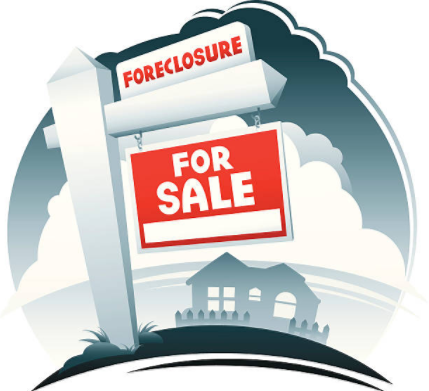
So, you want to flip houses? You’ve watched hours upon endless hours of Flip or Flop, Fixer Upper, and Property Brothers, and you’re ready to get your hands dirty. Does spending every waking hour and the occasional all nighter working on the house to have it ready for listing by a certain date sound enticing to you? If so, continue readying. If not, turn back now! I promise this business is not for everyone!
As a seasoned Realtor and part-time house flipper, here is my advice for those looking at a possible plunge into the flipping department:
ENLIST A TRUSTWORTHY REAL ESTATE AGENT
Employing the right real estate professional is the best place to start. An experienced and knowledgeable agent in your corner can make or break your success. Your Realtor should be an expert on the local market, how to spot investment potential, and ultimately how to market the property once you’re done. Since your agent will likely be doing both your purchase and sale, they may be open to taking a reduced commission, which will help maximize profits.
GET QUALIFIED
Unless you’re paying cash, you need to apply and be approved for a loan. Since this purchase is not a primary residence or rental property, most mortgage institutions will not fund flips with traditional loans. Private and hard money lenders issue one year interest only loans and usually require a larger down payment and higher interest rate, but this may be your only option. Your real estate agent should be able to provide you these contacts.
IDENTIFY YOUR TARGET PROPERTY
Once you’ve obtained financing, you’ll need to narrow down the criteria for the type of house you want to buy. Things to consider are price, location, neighborhood, style, age, level, bedrooms, and square footage just for starters. It’s best to keep it simple with a three-bedroom, two-bathroom minimum, single-family home in a hot or up and coming location. Stay clear from things that could affect resale value like being on a busy street or having only one bathroom as these kinds of oddities could have you spending longer time on the market upon resale. Also keep in mind, the older the house, the more likely it is to present costly complicated issues such as structural, electrical, plumbing, and title.
DIAL IN ON YOUR TARGET PROPERTY
If you’re in a similar market to ours in the Boise metro area, you’ll need to find places that have been on the market for some time, unless you are willing to pay full price or over asking price for your investment. But part of being a smart investor is finding properties BELOW market value to compensate for unexpected costs that could arise during the flip. To maximize profits and select the right house, try and spot easy ways you can add value like updating the kitchen, primary bathroom, painting, flooring, and big-ticket items such as roof, major appliances, and landscaping. It’s quite common for good investors to add hundreds of thousands of dollars in value with only minimal updates.
PLAN YOUR REHAB AND DO THE MATH
Take inventory of the items which will need to be completed during the flip. Make sure to include labor and materials. Then, add these rehab costs to the initial investment to purchase, and any other costs such as real estate fees, closing costs, and monthly mortgage payments if you’ll have any. Is your anticipated overall total investment well below your target final sales price and does it leave enough room for the profit you desire? If you’re having trouble with this equation, ask your Realtor to estimate the home’s value upon resale. If the math pencils, move on to the next step. If at all questionable, reevaluate and look for a different property.
MAKE THE OFFER
Once you’re comfortable with the math, have your agent submit the offer and work with the listing agent to secure the home and close. Most private lenders can close quickly and sometimes without ordering an appraisal, which will make your modest offer appear more favorably to the seller, especially if they have spent some time on the market and are eager to make a deal.
KNOW WHAT SELLS
Hopefully you’ve already enlisted the help of a trusted, experienced, and available contractor to help tackle the rehab project. Your value will mostly come from your understanding of how and where to add value. Today’s home buyers prefer completely move-in ready homes. The most bang for your buck will be items such as hard surface countertops, cabinets, kitchen sink, backsplashes, glass/tile showers, flooring, paint, roof, HVAC, and landscaping and curb appeal. If you did your homework before you purchased, you’ll have already developed a list of items you’re planning to do.
LEAVE PERSONAL TASTES UP TO THE BUYERS
While detailed side-projects can sometimes add value, they can also detract from the overall presentation and require time and money that could be much better used elsewhere. It’s also best to stay away from eclectic designs, unless you are an expert on what is popular and trendy. But even then, styles could change during the duration you own the home. The best approach is to appeal to the lowest common denominator, that is, what most home buyers will find appealing. For example, while some people may prefer green cabinets, most others do not. Do not push away large segments of potential home buyers. Provide a clean slate and let the buyer make personal changes once they’ve purchased the home.
TIME IS MONEY
A smooth flip should take anywhere from 2-4 months if done efficiently and correctly. The longer you hold onto the property the more costs will surely be adding up. However, in our market, since prices seem to always be increasing, it’s likely the strong seller’s market will help offset any delays in getting to market. Remember though, smart flippers don’t make money owning property, but rather selling it.
THIS IS NOT A HOBBY!
I once heard Scott Yancey from the hit reality TV show Flipping Vegas exclaim, “I’m not in this business to have fun, I’m in this business to make money.” Nothing could be truer. Contrary to the glamour portrayed in shows such as these, there is nothing glamourous about flipping houses. It is a risk that requires downright hard work and high initial costs. However, buying a house in poor condition and selling it for more money after renovations is a proven money-making strategy. The process can be grueling, but the end result can be very rewarding and profitable.
STAGE THE HOME AND GET IT ON THE MARKET!
Perfection is the enemy of progress. However, even minor issues can lead potential buyers to wonder what else could be wrong. Put enough care into your flip to make sure the new owners will be happy with the decision they made to purchase. Reevaluate a final sales price based on the polished product and any market shifts that have occurred while you’ve owned it. Stage the home professionally and let the bidding war begin!
Still want to flip houses after reading this?! Call me @ 208-629-9236 or email me @ doug@platinumidaho.com today atand let’s devise a plan to get started! Happy Flipping Everyone!





